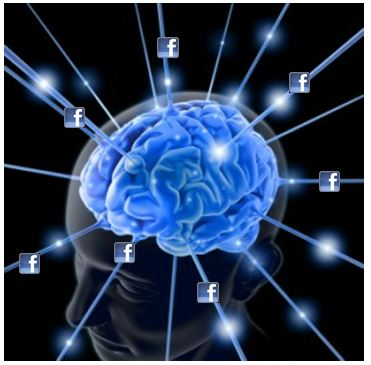There is mounting evidence that social networking sites like Facebook tap into a need for connection that is embedded in our DNA. We may be actually chemically-predisposed to wasting time on social networks.
A recent post by David Rock, author of Your Brain at Work put it this way: “The brain network that is always on in the background is a region involved in thinking about yourself and other people. This network is so ubiquitous it has been labeled the ‘default network.’ When not doing anything else, the brain’s favorite pastime is to think about people. One study showed that inactivity for just two seconds switched the default network back on.
“Many studies have emerged about the importance of human social interactions to our well-being. We know that social rewards light up the brain’s reward circuits more than non-social rewards, and that social threats, such as feeling lonely or ostracized, light up the threat center more than non-social threats. We’ve even seen that social pain, like being left out of an activity, lights up the same regions as physical pain.
The University of Chicago recently conducted one such study and found social networks to be more addictive than cigarettes and alcohol.
Neuro-Facebook
The bottom line is that the easy and ubiquitous access to electronic connections ignites our brain and creates an addictive formula that keeps people coming back. It creates intoxicating rewards with little risk.
Facebook is brain crack for a generation.
The smart folks in the gaming business have known this for years. The average World of Worldcraft player spends six hours a day playing a game.
In the long run, this may be the real business benefit of Facebook for many companies. Not ads. Certainly not accumulating “Likes.” But finding ways to get people to spend increasing amounts of time with their brand … even in an addictive way.
The new economic battlefield
Today, engaging with a brand on Facebook can be mildly interesting. But isn’t there an opportunity for so much more? Think about this. Facebook must get you to spend more time on its site (to collect personal information and sell you ads). Companies, who are tuning in to the psychology of Facebook, will be finding more and more compelling ways to get you to spend that time with them. The Attention Economy. This is the new battlefield.
I have yet to see a brand Facebook page that involves me to the point that I can’t wait to come back the next day. But certainly that is coming, right?
What do you think? Have you seen any companies effectively getting you hooked on Facebook? Something more than a short-term contest? And what are the implications when they figure this out?
Link to Your Brain at Work is an affiliate link.



